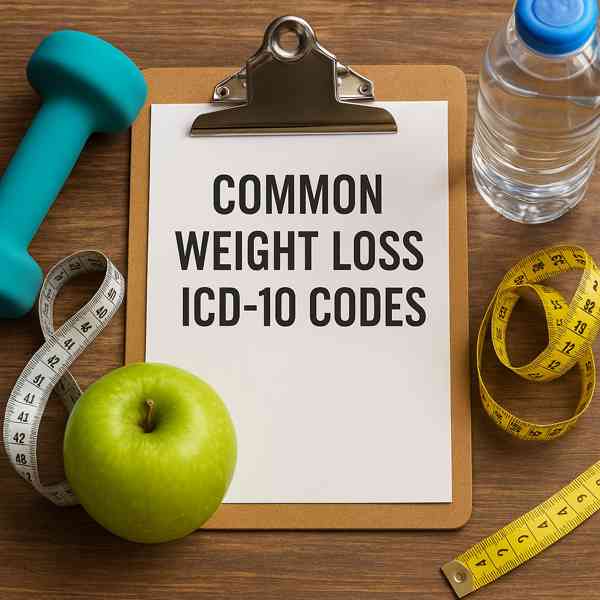Understanding Weight Loss ICD-10 Codes
Understanding Weight Loss ICD-10 Codes
Blog Article

ICD-10 codes help communicate diagnoses effectively, ensuring insurance coverage and proper documentation.
In this article, we’ll break down what ICD-10 codes are used for weight loss, how to apply them, and what you should know for accurate recordkeeping.
Understanding ICD-10 for Weight Loss
ICD-10 stands for the International Classification of Diseases, 10th Revision.
Each diagnosis is assigned a unique code, which is used for:
- Submitting claims to health providers
- Organizing medical statistics
- Clinical documentation
Top Codes Used for Documenting Weight Loss
Choosing the correct code depends on the cause, severity, and context of the weight loss.
Key codes include:
- R63.4 – Abnormal Weight Loss
This code applies when a patient loses a significant amount of weight without trying, often due to illness.
- Used when weight loss is guided by professional support
Often applied in cases involving nutritional intervention or guidance.
- Z72.4 – Inappropriate Diet and Eating Habits
- Used in contrast to weight loss when monitoring obesity treatment progress
- Applied in extreme undernutrition cases, often linked with weight loss
Clinical Use of R63.4
R63.4 is the most commonly used ICD-10 code for weight loss, but it must be applied correctly.
- The patient reports significant, unintentional weight loss
- A known condition doesn’t fully explain the weight change
- Additional testing is required to rule out causes
Tips for Correct ICD-10 Weight Loss Usage
To avoid claim denials or coding errors:
- This determines whether R63.4 is appropriate
- Document related symptoms or conditions
- Support your claim with a full picture
- Be sure they make sense in context
Coding for Counseling and Support Services
If you’re coding for a structured weight loss program or health coaching, consider using these Z-codes:
- For nutrition-based support
- Can apply to coaching or fitness counseling
- Used in early evaluation settings
These codes can support insurance claims for wellness, prevention, and obesity treatment plans.
Use ICD-10 Effectively in Clinical Settings
Using the right ICD-10 code for weight loss is non-negotiable for clear documentation and proper billing.
To summarize:
- R63.4 = Unintentional weight loss
- Great for structured programs
- E-codes = Nutritional or medical malnutrition
Always consult coding guidelines click here and payer policies when applying ICD-10 codes. Report this page